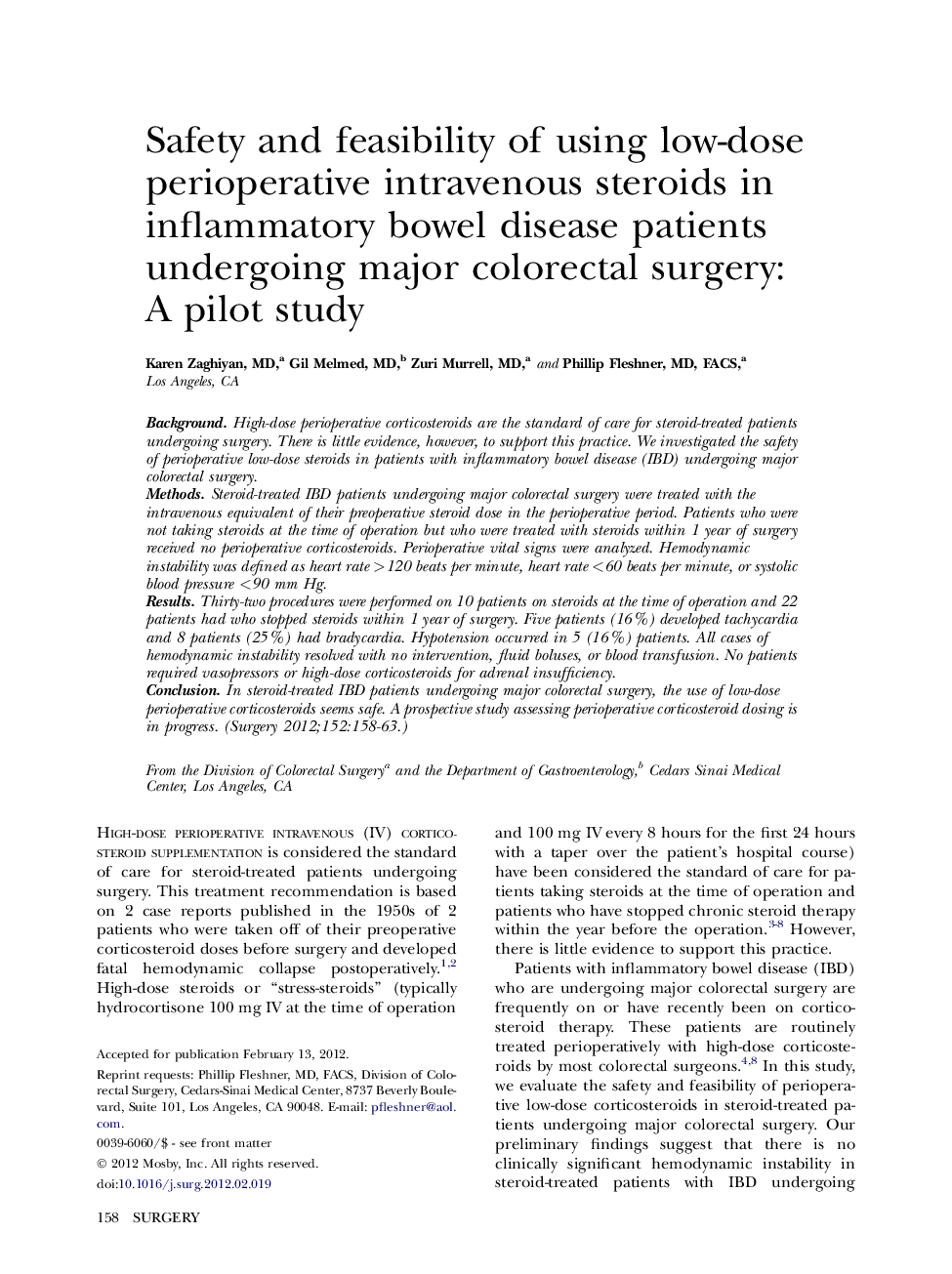| Article ID | Journal | Published Year | Pages | File Type |
|---|---|---|---|---|
| 4308278 | Surgery | 2012 | 6 Pages |
BackgroundHigh-dose perioperative corticosteroids are the standard of care for steroid-treated patients undergoing surgery. There is little evidence, however, to support this practice. We investigated the safety of perioperative low-dose steroids in patients with inflammatory bowel disease (IBD) undergoing major colorectal surgery.MethodsSteroid-treated IBD patients undergoing major colorectal surgery were treated with the intravenous equivalent of their preoperative steroid dose in the perioperative period. Patients who were not taking steroids at the time of operation but who were treated with steroids within 1 year of surgery received no perioperative corticosteroids. Perioperative vital signs were analyzed. Hemodynamic instability was defined as heart rate >120 beats per minute, heart rate <60 beats per minute, or systolic blood pressure <90 mm Hg.ResultsThirty-two procedures were performed on 10 patients on steroids at the time of operation and 22 patients had who stopped steroids within 1 year of surgery. Five patients (16%) developed tachycardia and 8 patients (25%) had bradycardia. Hypotension occurred in 5 (16%) patients. All cases of hemodynamic instability resolved with no intervention, fluid boluses, or blood transfusion. No patients required vasopressors or high-dose corticosteroids for adrenal insufficiency.ConclusionIn steroid-treated IBD patients undergoing major colorectal surgery, the use of low-dose perioperative corticosteroids seems safe. A prospective study assessing perioperative corticosteroid dosing is in progress.
